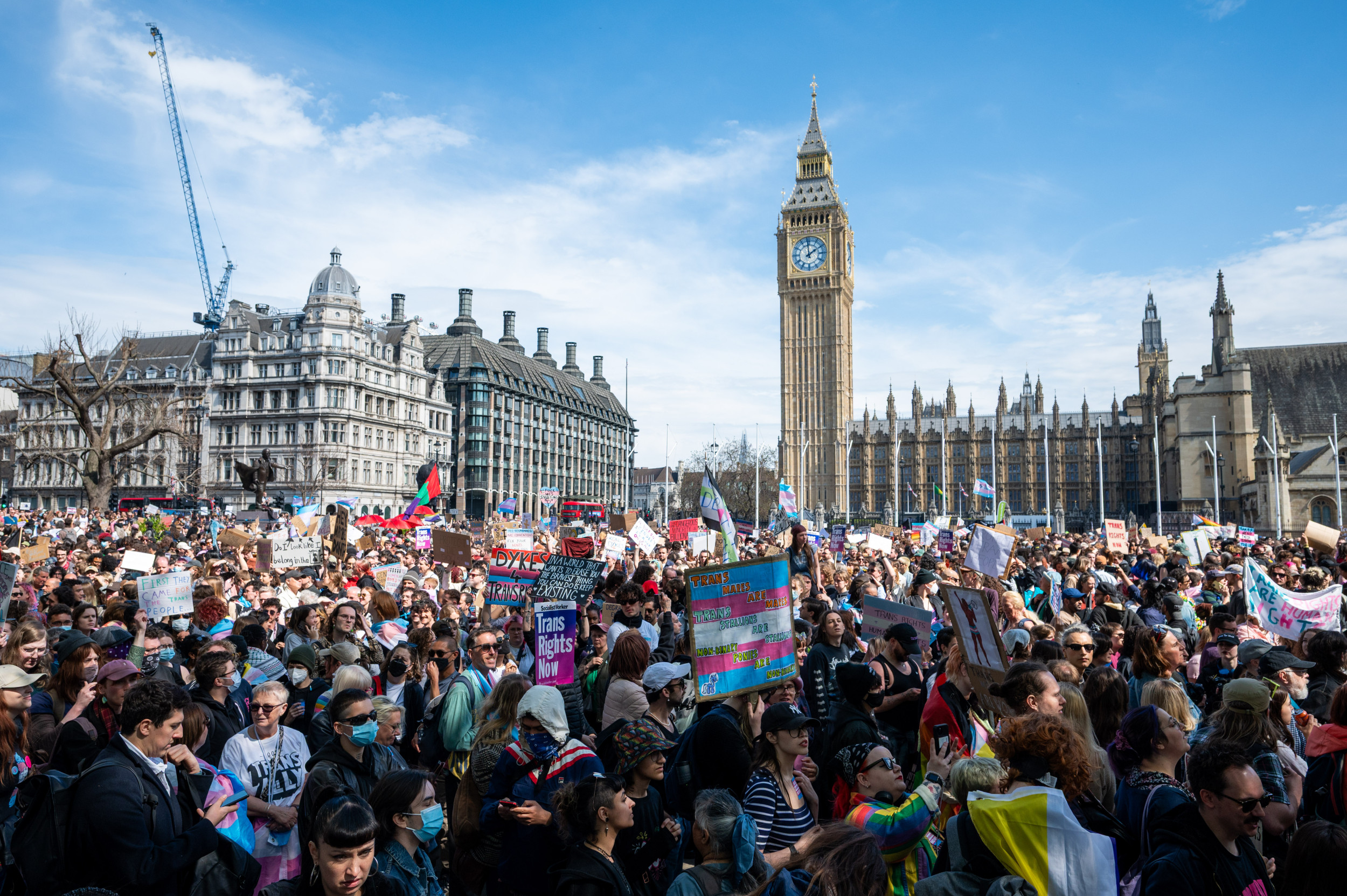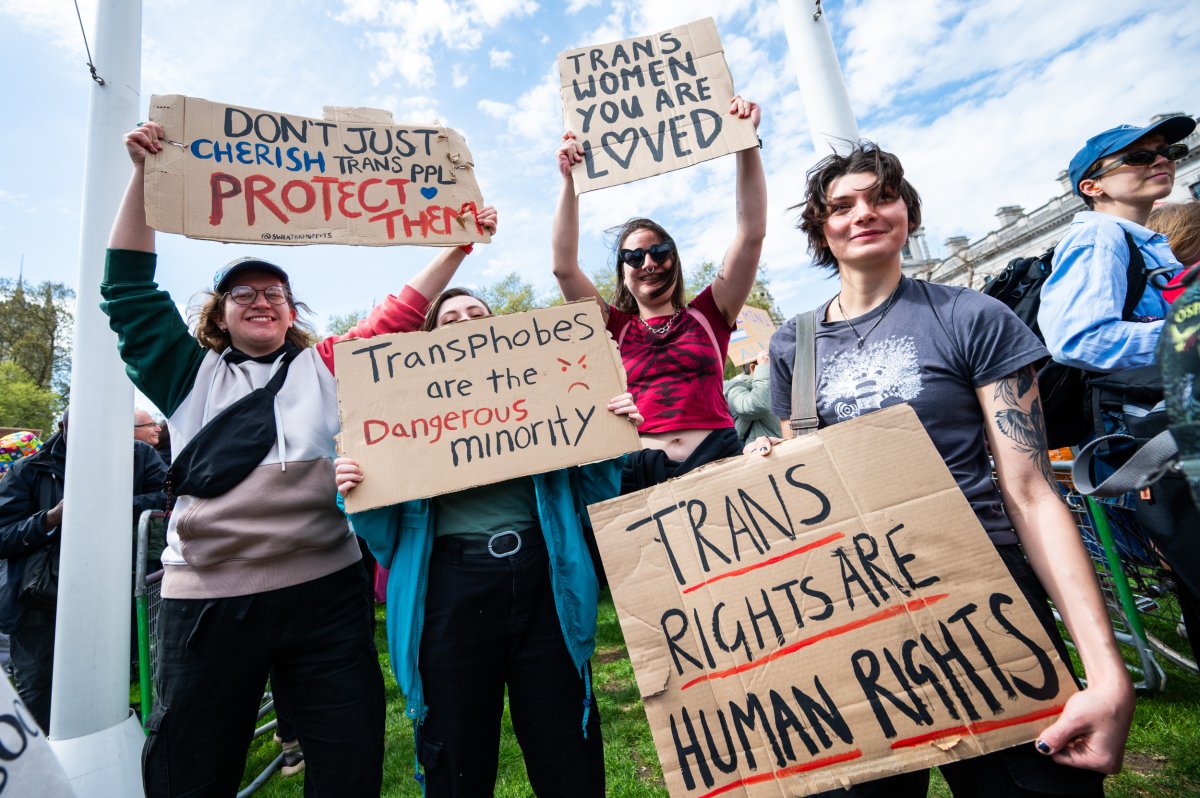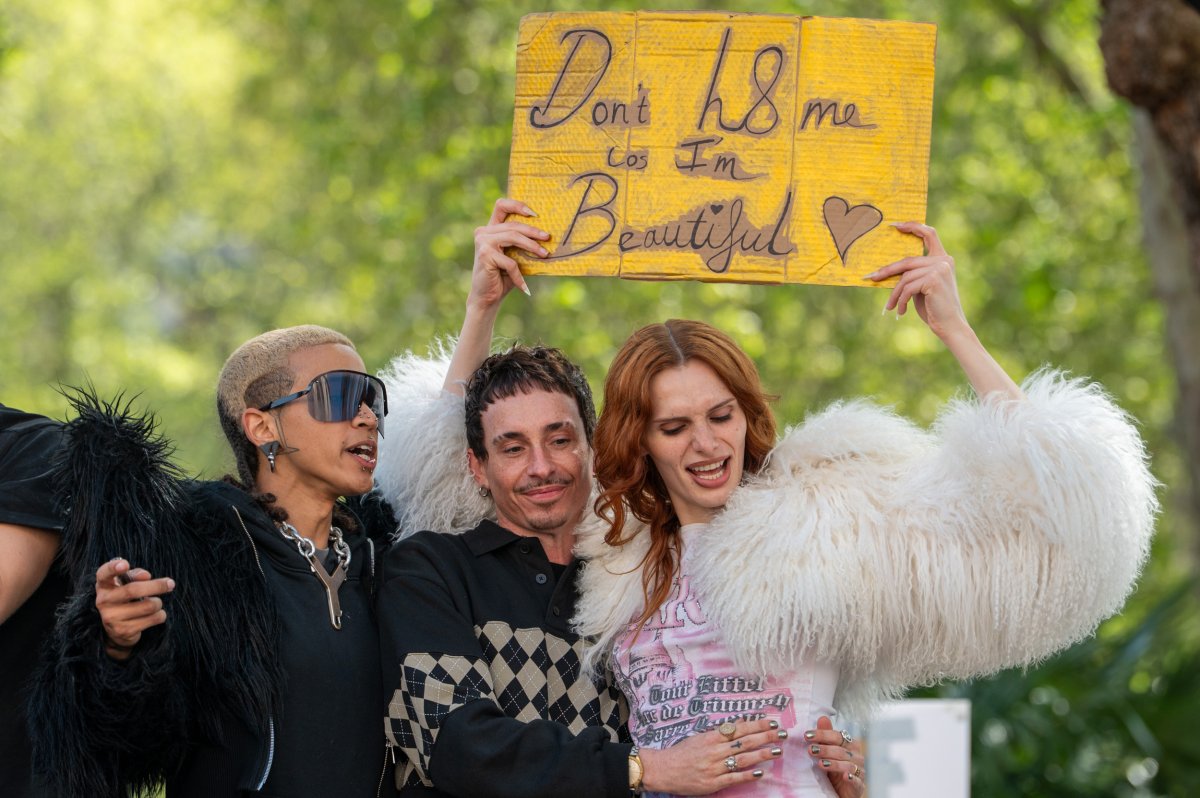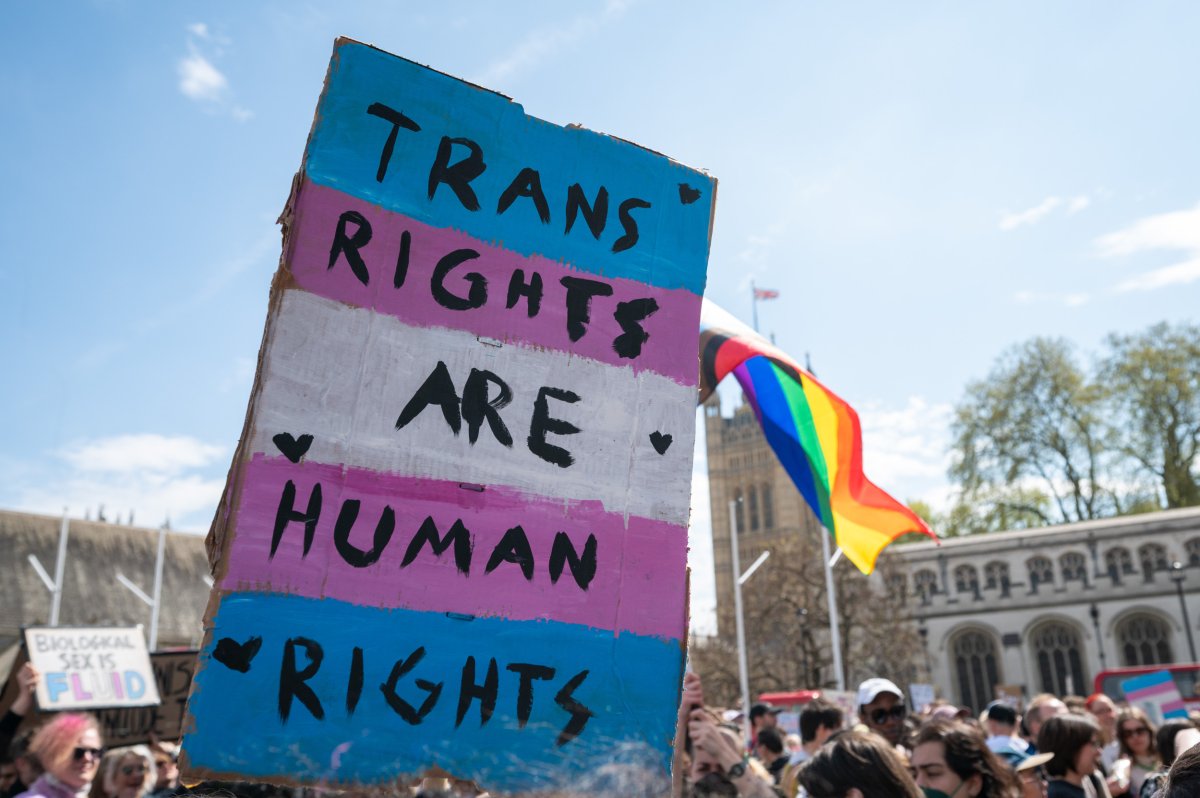
Thousands of transgender rights protesters gathered in central London on Saturday for an “emergency demonstration” in Parliament Square.
The protest come just days after the UK Supreme Court ruled that a woman is someone born biologically female, explicitly excluding transgender women from that legal definition.
Why It Matters
The ruling has sparked significant concern among transgender advocacy groups about potential erosion of rights, despite the court stating that transgender people remain protected from discrimination.
The head of the Equality and Human Rights Commission has indicated the ruling could lead to transgender women being excluded from women’s toilets, hospital wards, and sports teams.
Ben Montgomery/Getty Images
What To Know
Activists and allies demanded “trans rights now,” while waving flags and holding banners during Saturday’s Trans Liberation Emergency Protest.
The Supreme Court’s unanimous decision on April 16 stemmed from a 2018 Scottish law requiring at least 50 percent women on boards of public bodies, which would have included transgender women with gender recognition certificates.
The court determined that using such certificates to interpret someone’s sex would conflict with definitions in the 2010 Equality Act, ruling that the law “can only be interpreted as referring to biological sex.”
Census data shows approximately 116,000 people in England, Scotland, and Wales identify as transgender, with about 8,500 gender recognition certificates having been issued. The British government has characterized the ruling as bringing “clarity and confidence” for women and service providers.

Ben Montgomery/Getty Images
Voices Supporting the Ruling
The court decision has garnered strong support from some, including Harry Potter author J.K. Rowling, who reportedly helped finance the legal challenge brought by activist group Campaigners from For Women Scotland.
Rowling celebrated the decision, posting on X, formerly Twitter: “It took three extraordinary, tenacious Scottish women with an army behind them to get this case heard by the Supreme Court and, in winning, they’ve protected the rights of women and girls across the UK.”
She later posted a photo of herself celebrating the ruling with the message: “I love it when a plan comes together. #SupremeCourt #WomensRights”
Conservative Party leader Kemi Badenoch also welcomed the ruling on X, declaring: “Saying ‘trans women are women’ was never true in fact and now isn’t true in law, either.”
She added: “A victory for all of the women who faced personal abuse or lost their jobs for stating the obvious,” she added. “Women are women and men are men: you cannot change your biological sex. The era of Keir Starmer telling us that some women have penises has come to an end. Hallelujah! Well done @ForWomenScot!”

Ben Montgomery/Getty Images
What People Are Saying
Sophie Gibbs, 19-year-old transgender woman, told the Associated Press: “It’s a terrifying time to have your rights taken away from you. I was disappointed to think that we could live in a society that seems so progressive now but is willing to make such a dangerous and harmful ruling.”
John Swinney, Scotland’s First Minister said in a statement that he: “Understands” the “hurt and anguish” trans people are feeling over the verdict, while accepting that the ruling must be followed.
Maggie Chapman, a Green Party lawmaker in the Scottish Parliament, said in a statement that the ruling was: “Deeply concerning” for human rights and “a huge blow to some of the most marginalized people in our society.”
She added: “Trans people have been cynically targeted and demonized by politicians and large parts of the media for far too long.”

Ben Montgomery/Getty Images
What Happens Next
While the immediate practical implications of the ruling are still being assessed, transgender advocacy groups are mobilizing to protect existing protections under the Equality Act.

Ben Montgomery/Getty Images
Reporting from the Associated Press contributed to this article.
